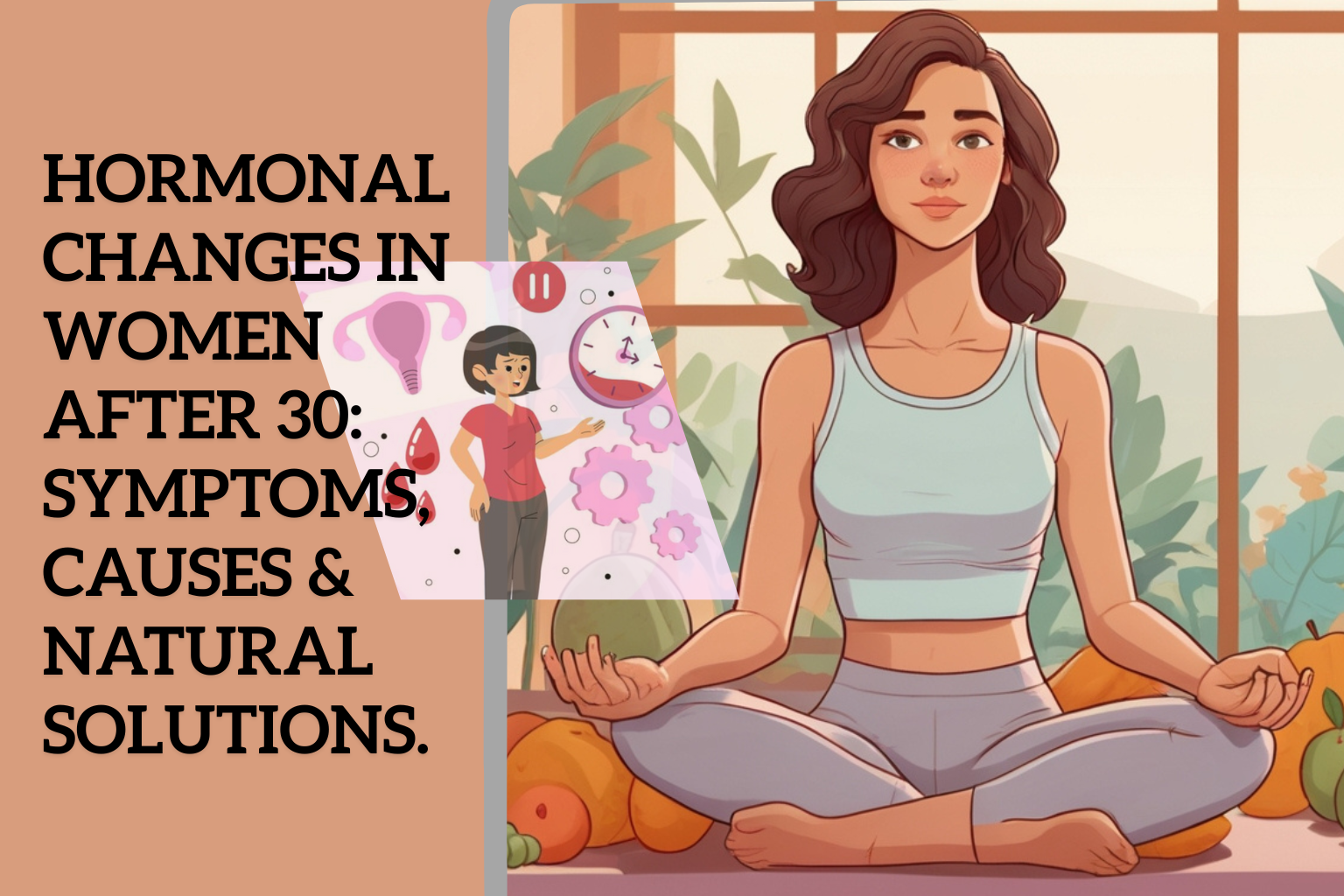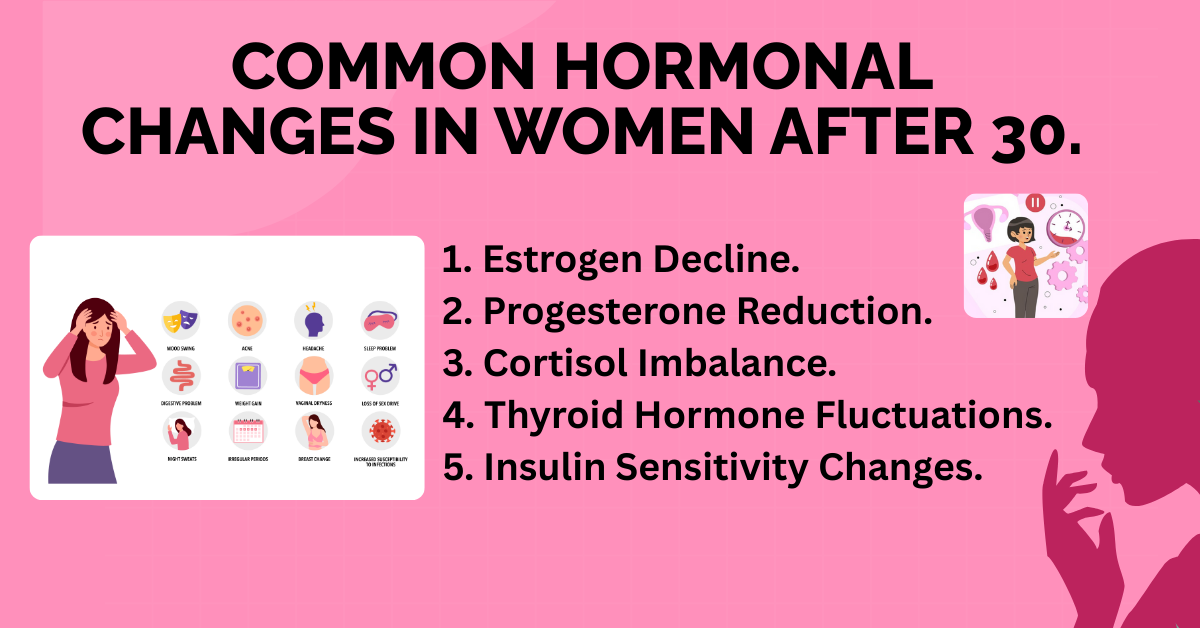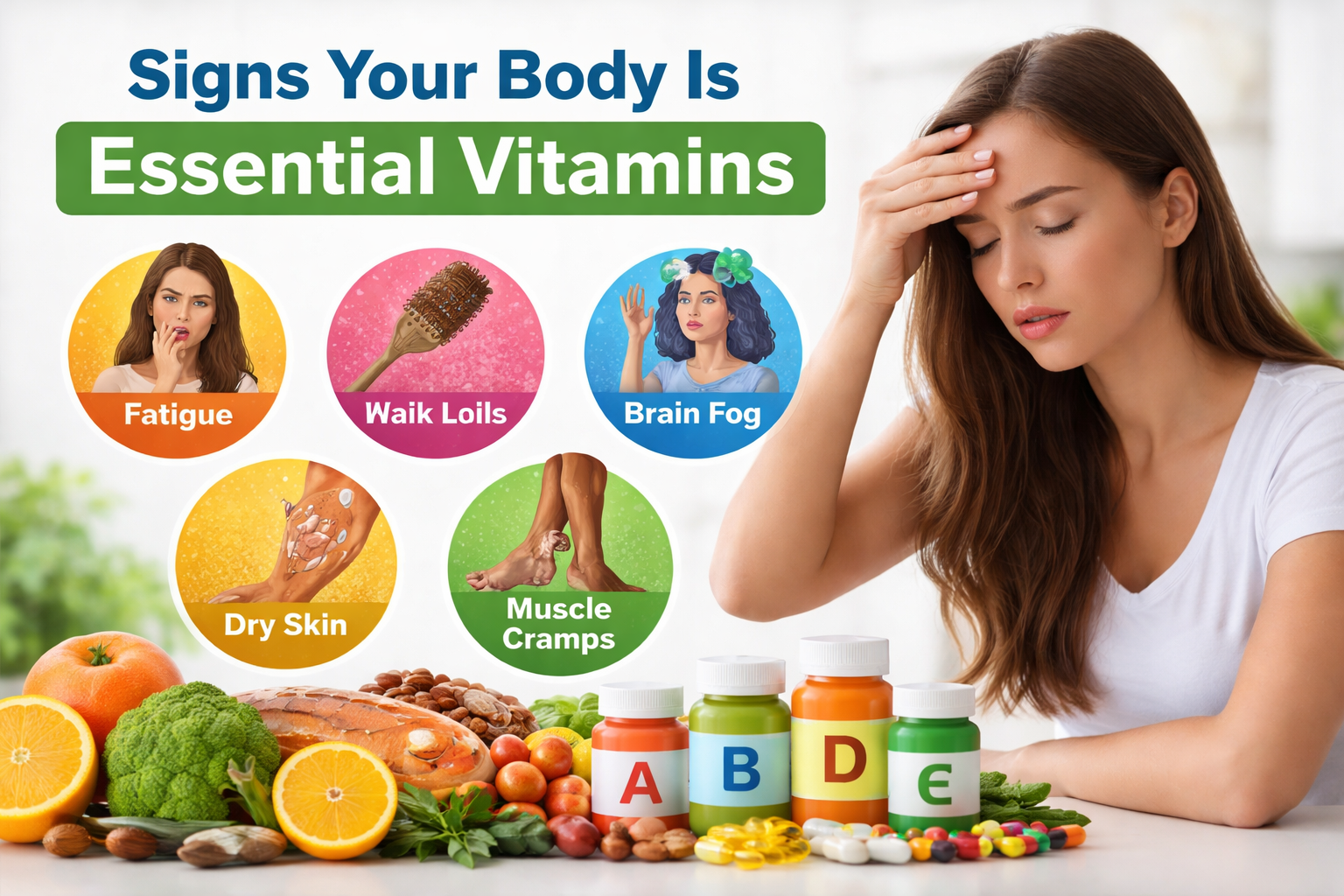Our Blogs
Blogs
/
Blog Details
Hormonal Changes in Women After 30: How to Recognize and Manage Them.
Author
Top Health Solutions.
Post Date
September 15, 2025

"Explore the importance of health and wellness in today’s busy lifestyle and discover effective tips, strategies, and trusted resources to improve your well-being & live a healthier life."
- Ranjit Chandra Mozumder.
As women step into their 30s, many notice subtle yet powerful shifts in their body and overall health. These changes often trace back to hormonal fluctuations, which can influence everything from energy levels to mood, metabolism, and reproductive health. Understanding these hormonal changes in women after 30 is not only important for managing symptoms but also for making smart lifestyle choices that enhance long-term health.
In this article, we’ll explore what hormones actually change, why it happens, and what women can do to regain balance naturally.
🔍 Why Do Hormonal Changes Begin After 30?
The female body experiences continuous hormonal adjustments throughout life. But after 30, these changes become more noticeable because of:
-
Declining estrogen and progesterone levels – hormones responsible for menstrual cycles and fertility.
-
Increased cortisol levels from stress and lifestyle factors.
-
Insulin sensitivity shifts, which can impact weight and energy.
-
Early signs of perimenopause, which sometimes begin in the late 30s.
According to Harvard Health Publishing, hormone shifts are natural and gradual but can become disruptive without proper care.

⚡ Common Hormonal Changes in Women After 30.
1. Estrogen Decline.
Estrogen plays a crucial role in regulating the menstrual cycle, bone health, and even skin elasticity. After 30, women may notice:
Irregular periods
Vaginal dryness
Mood swings
2. Progesterone Reduction.
Progesterone balances estrogen. When levels drop:
PMS symptoms may intensify
Sleep issues like insomnia can appear
Anxiety and irritability may increase
3. Cortisol Imbalance (Stress Hormone)
With career, family, and financial responsibilities peaking in the 30s, stress hormone cortisol can remain elevated, leading to:
Weight gain around the belly
Poor sleep quality
Chronic fatigue
4. Thyroid Hormone Fluctuations.
The thyroid gland controls metabolism. Women over 30 are more likely to develop thyroid issues, which cause:
Sudden weight changes
Hair thinning
Brain fog
5. Insulin Sensitivity Changes.
Hormonal shifts may reduce insulin efficiency, causing:
Increased sugar cravings
Higher risk of developing Type 2 diabetes
Energy crashes after meals
💡 Symptoms of Hormonal Changes in Women After 30.
The symptoms vary, but common red flags include:
Irregular menstrual cycles
Unexplained weight gain
Persistent fatigue
Low libido
Hair loss or thinning
Skin issues like acne or dryness
Difficulty concentrating
🥦 How to Manage Hormonal Changes Naturally.
The good news is that women can regain balance and thrive by focusing on lifestyle, nutrition, and professional support.
1. Prioritize Hormone-Friendly Nutrition.
Eating the right foods can help regulate estrogen, progesterone, and insulin levels.
✅ Best foods for hormone balance:.
Cruciferous vegetables (broccoli, kale, cauliflower)
Omega-3 rich foods (salmon, flaxseeds, walnuts)
High-fiber grains (quinoa, oats)
Lean proteins (chicken, beans, lentils)
🚫 Foods to avoid:
Processed sugar
Refined carbs
Excessive caffeine and alcohol
2. Exercise Smartly.
Regular physical activity lowers cortisol and improves insulin sensitivity.
Strength training supports bone and muscle health.
Yoga and Pilates reduce stress.
Cardio boosts heart health and burns fat.
3. Sleep Like a Queen.
Hormones regenerate during deep sleep. Aim for 7–9 hours nightly, and maintain a consistent bedtime routine.
4. Stress Management Techniques.
Chronic stress is a hormone disruptor. Try:
Meditation or mindfulness
Journaling
Spending time in nature
Breathing exercises
5. Supplements and Herbal Support.
Before starting supplements, consult a professional. Commonly recommended ones include:
Vitamin D – for bone and hormone health
Magnesium – for PMS relief and stress reduction
Ashwagandha – an adaptogen that helps balance cortisol
Evening Primrose Oil – supports estrogen balance
6. Medical Check-Ups
Regular visits to a gynecologist or endocrinologist ensure early detection of hormone imbalances. Blood tests for thyroid, estrogen, progesterone, and cortisol can provide clarity.
🚀 Power Tips to Boost Hormone Health After 30.
Stay hydrated – water flushes toxins that disrupt hormones.
Practice mindful eating – avoid late-night snacking.
Keep a hormone diary – track cycles, mood, and symptoms.
Limit screen time at night – blue light disrupts melatonin.
Build a strong support system – emotional health impacts hormones too.
📝 Final Thoughts....
The hormonal changes in women after 30 may feel overwhelming at first, but with the right knowledge and proactive lifestyle changes, women can continue to live a healthy, energetic, and fulfilling life. Instead of fearing these shifts, think of them as signals from your body — guiding you to eat better, move smarter, and care more deeply for your well-being.
By understanding your hormones and working with your body, you’ll not only manage symptoms but also unlock new levels of health, vitality, and confidence.
🔗 External Resources for Women’s Hormonal Health.
For further reading and medical advice, check these trusted sources:
# FAQs
❓ Frequently Asked Questions (FAQ) on Hormonal Changes in Women After 30
Early signs include irregular menstrual cycles, mood swings, low energy, sleep disturbances, and unexplained weight changes. Some women may also experience hair thinning and skin problems.
Yes, some women may enter early perimenopause in their late 30s. Symptoms can include hot flashes, night sweats, and irregular periods. However, this varies from woman to woman.
Eating a balanced diet, managing stress, exercising regularly, and getting enough sleep are the most effective natural ways. Supplements like magnesium, vitamin D, and omega-3s may also help.
Yes. Fertility naturally begins to decline in the early 30s due to reduced estrogen and progesterone levels. However, many women can still conceive, especially with proper health management.
If you experience persistent fatigue, sudden weight gain, severe mood swings, or very irregular cycles, it’s best to consult a gynecologist or endocrinologist for testing and treatment.
Related Blogs
Bioderma Atoderm Hydrating Shower Gel Review: A Gentle Body Wash for Dry and Sensitive Skin.
Our Blogs Details Bioderma Atoderm Hydrating Shower Gel Review: A Gentle Body Wash for Dry and Sensitive Skin. Author Top Health Solutions. Post Date January 26, 2026 View 0 Shares Choosing the right Body Wash can make a huge difference, especially if you have normal to dry or sensitive skin. I have personally struggled with body washes that clean well but leave my skin feeling tight, itchy, or uncomfortable. After using Bioderma Atoderm Hydrating Shower Gel consistently, I felt it was worth sharing an honest, experience-based review for anyone considering this product.This is not a sponsored opinion or a brand claim. It is simply a detailed look at how this Body Wash performs in real daily use. First Impression and Packaging. At first glance, the packaging feels simple and practical. Bioderma focuses more on functionality than flashy design, and that already builds trust. The bottle is easy to handle in the shower, and the flip-top cap works smoothly without leaking.Some people may feel the bottle size looks smaller than expected, but once you start using it, you realize that a little product goes a long way. Texture and Consistency of the Body Wash. Smooth and Silky Feel.One of the first...
Signs Your Body Is Lacking Essential Vitamins.
Our Blogs Details Signs Your Body Is Lacking Essential Vitamins. Author Top Health Solutions. Post Date January 22, 2026 View 0 Shares Your body is smart. When it lacks something important, it usually sends warning signals. The problem is that many people ignore these signs or blame them on stress, age, or a busy lifestyle. In reality, vitamin deficiencies are far more common than most people realize, especially with modern diets and processed foods.In this in-depth guide, we will break down the most important Signs Your Body Is Lacking Essential Vitamin, explain what each symptom really means, and help you understand how to take action before small issues turn into serious health problems. This article is written in a clear, human, and practical way so you can actually use the information. Why Vitamins Matter More Than You Think Vitamins play a crucial role in almost every function of your body. From energy production and immune defense to skin health and brain function, vitamins are the silent workers keeping everything running smoothly.When your body does not get enough essential vitamins, it cannot perform at its best. Over time, this leads to fatigue, frequent illness, mood changes, and long-term health complications. Recognizing...



